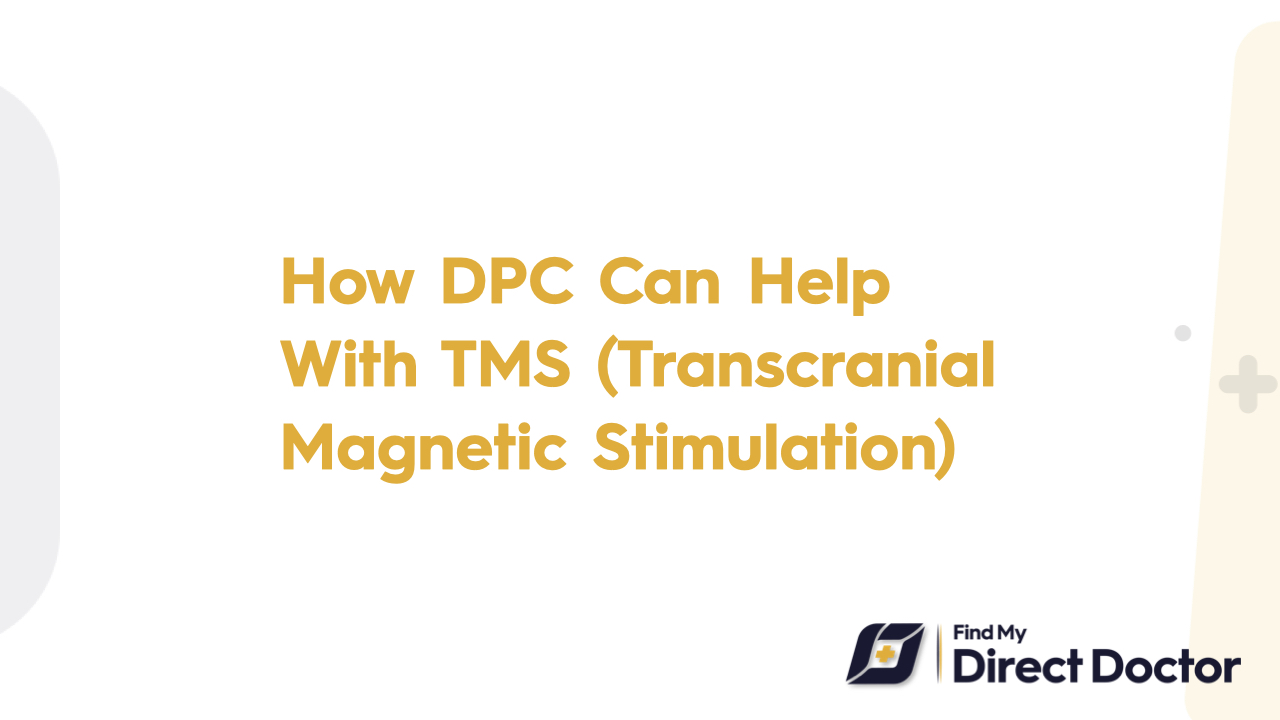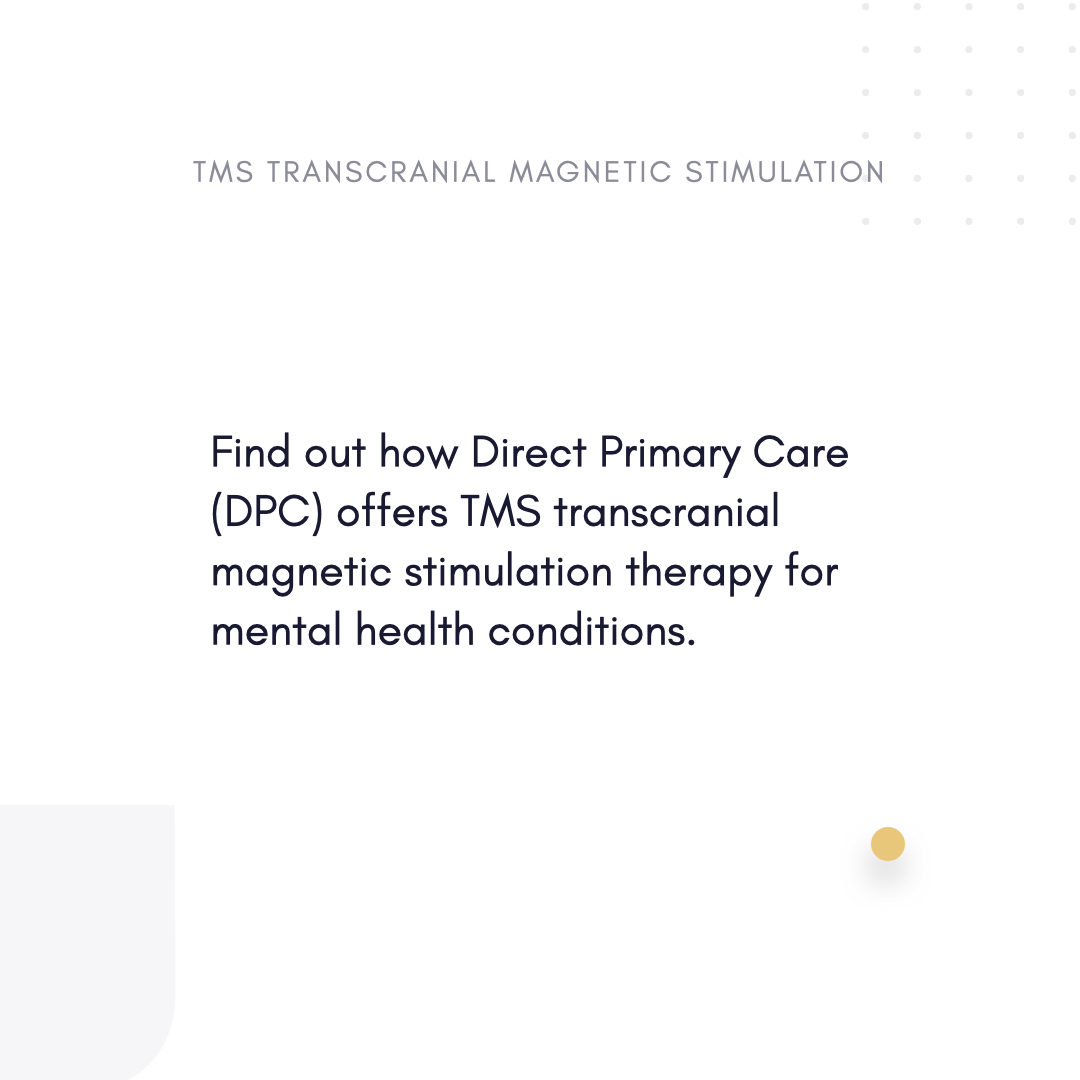



Neurons in the brain are stimulated by magnetic fields during transcranial magnetic stimulation (TMS), a non-invasive procedure. A variety of mental health conditions, including depression, anxiety, and neurological disorders, can be treated with TMS. Patients can receive this therapy in a personalized and supportive setting with Direct Primary Care (DPC).

Accessible Treatment:
Patients seeking treatment for depression, anxiety, and other mental health conditions can receive TMS therapy at DPC. With flexible scheduling and personalized care, patients are able to receive TMS sessions without long wait times or administrative hurdles.
Comprehensive Evaluation:
This assessment helps determine the appropriateness of TMS as a treatment option and allows for personalized care planning before starting TMS therapy.
Customized Treatment Plans:
A DPC provider develops a customized treatment plan based on the evaluation findings and the patient's preferences and needs. There may be additional therapies or interventions that complement TMS treatments as part of these plans, including the frequency and duration of TMS sessions.
Close Monitoring and Adjustment:
Patients' progress and response to TMS therapy is closely monitored by DPC providers throughout the course of the therapy. In order to optimize outcomes, they work with the patient to assess symptom improvement, side effects, and overall well-being.
Holistic Approach to Mental Health:
DPC emphasizes a holistic approach to mental health care, addressing lifestyle factors, stress management, and social support networks in addition to TMS therapy. Counseling, behavioral interventions, and wellness strategies are offered to support mental and emotional health.

Preparation for TMS Sessions:
The DPC providers review any pre-session instructions, such as avoiding caffeine or certain medications, to ensure optimal treatment outcomes before starting TMS therapy.
TMS Session Administration:
The intensity and duration of magnetic pulses are adjusted based on individual response and tolerance during TMS sessions, based on the established protocol. They ensure that the procedure is performed safely and comfortably, addressing any concerns or discomfort that may arise.
Post-Treatment Care and Follow-up:
In order to support recovery and maximize the benefits of therapy, DPC providers offer guidance about post-treatment care and self-care practices after each TMS session. They schedule regular follow-up appointments to assess progress, discuss any challenges or concerns, and make adjustments to the treatment plan as necessary. By offering ongoing support, patients are able to stay engaged in their treatment journey and achieve long-term mental wellbeing.
Previous Post